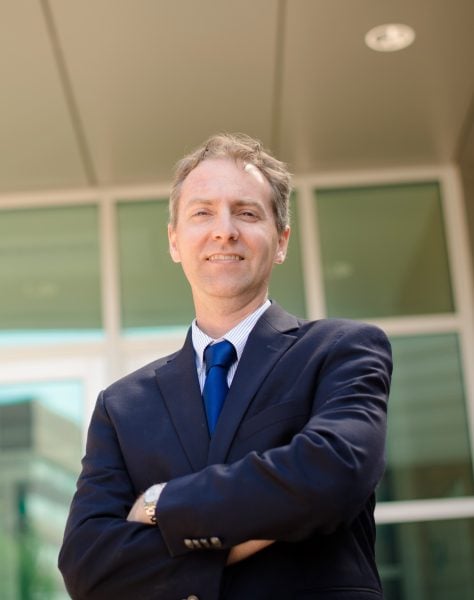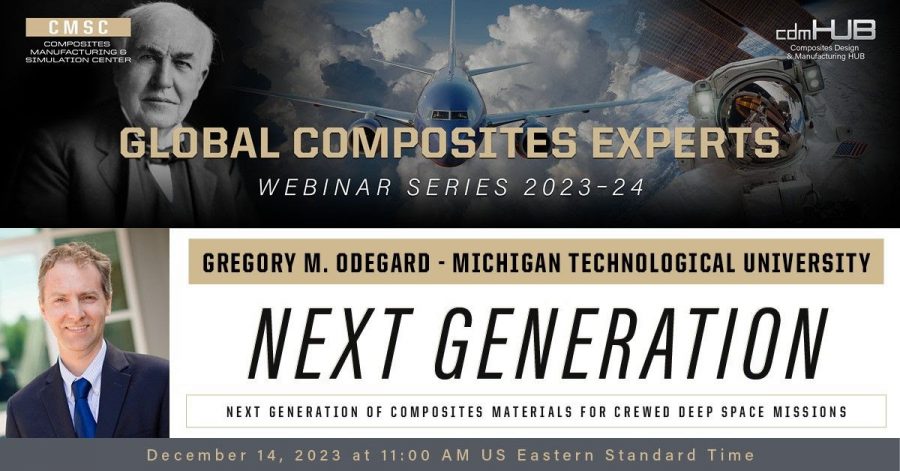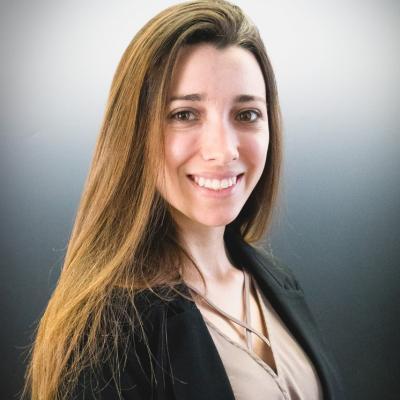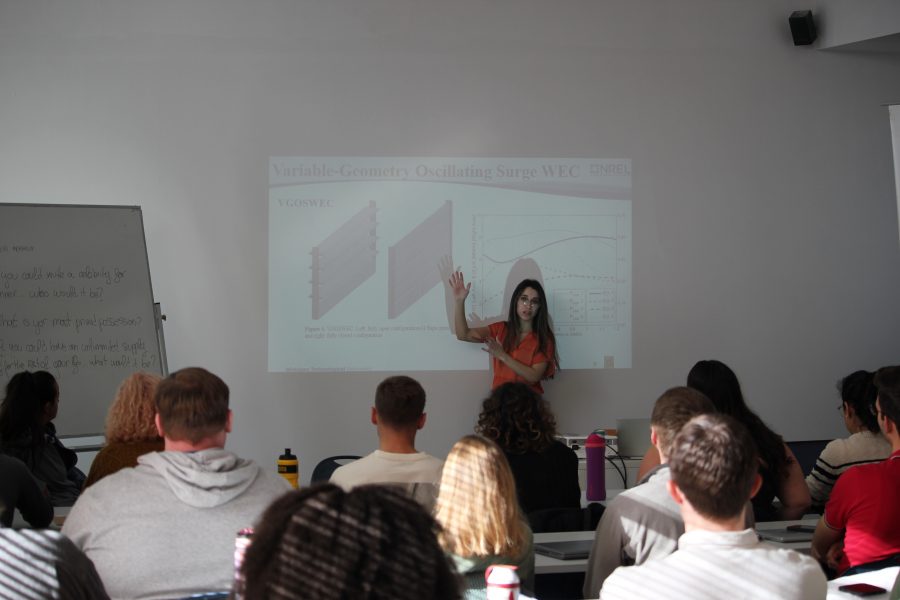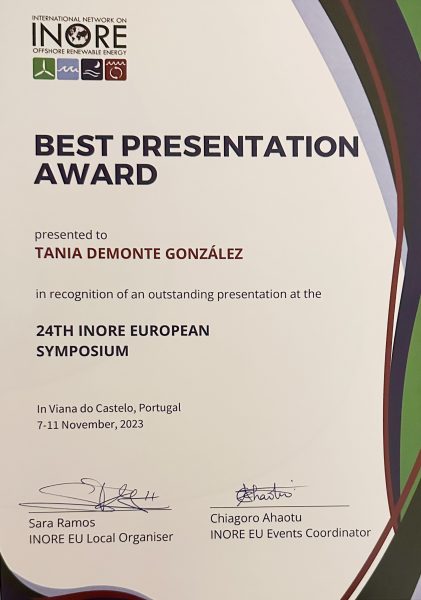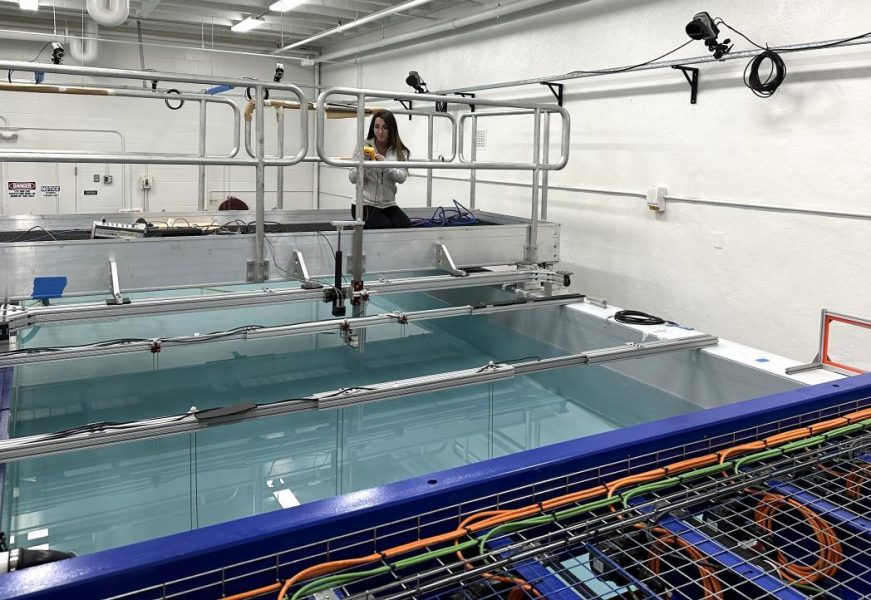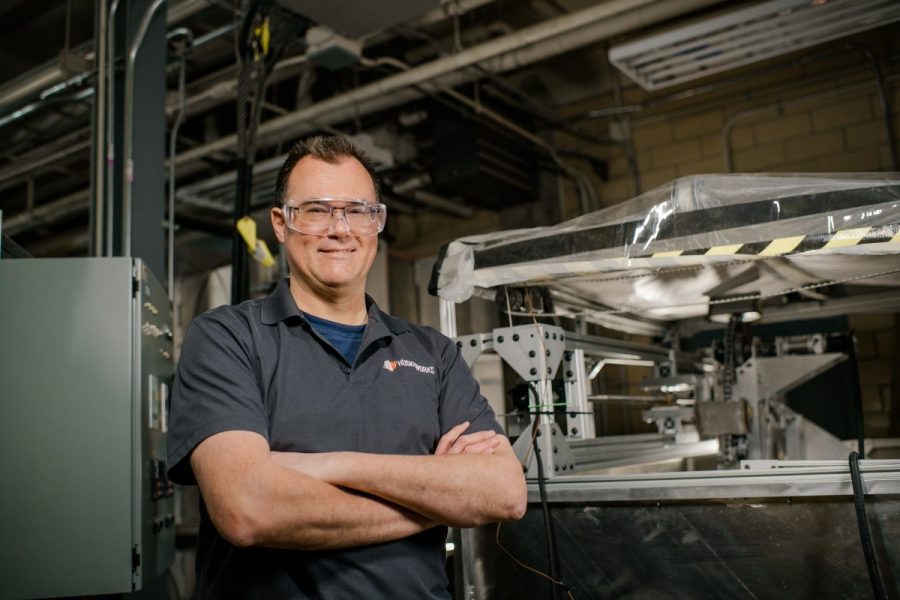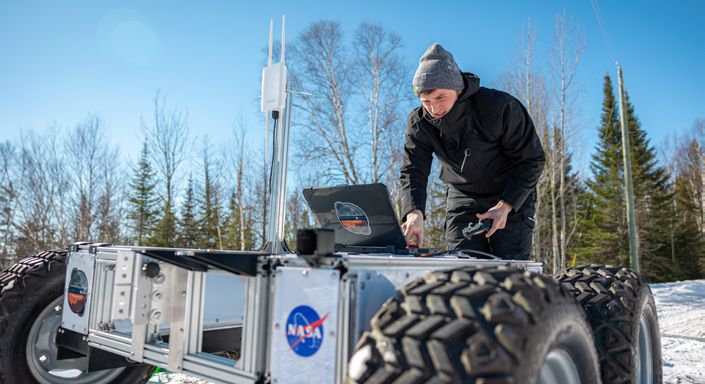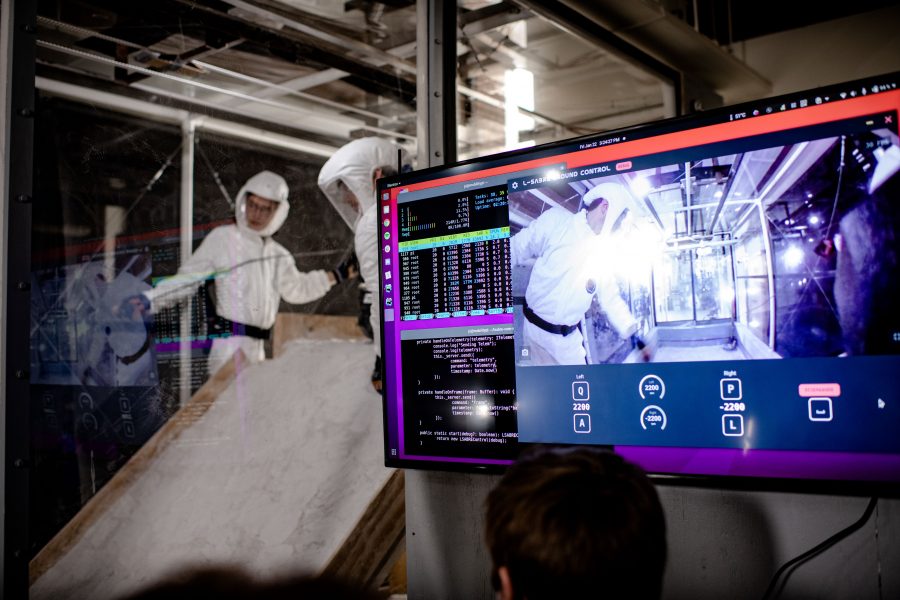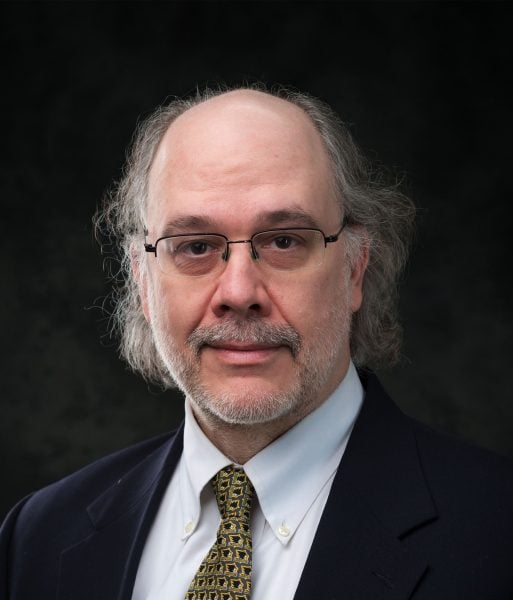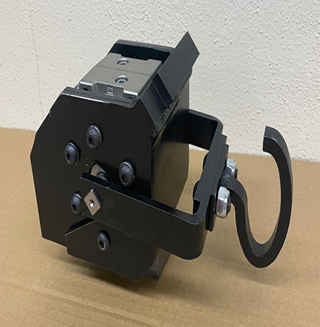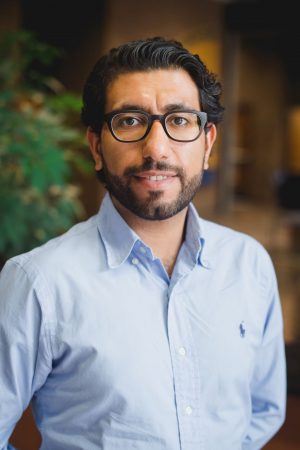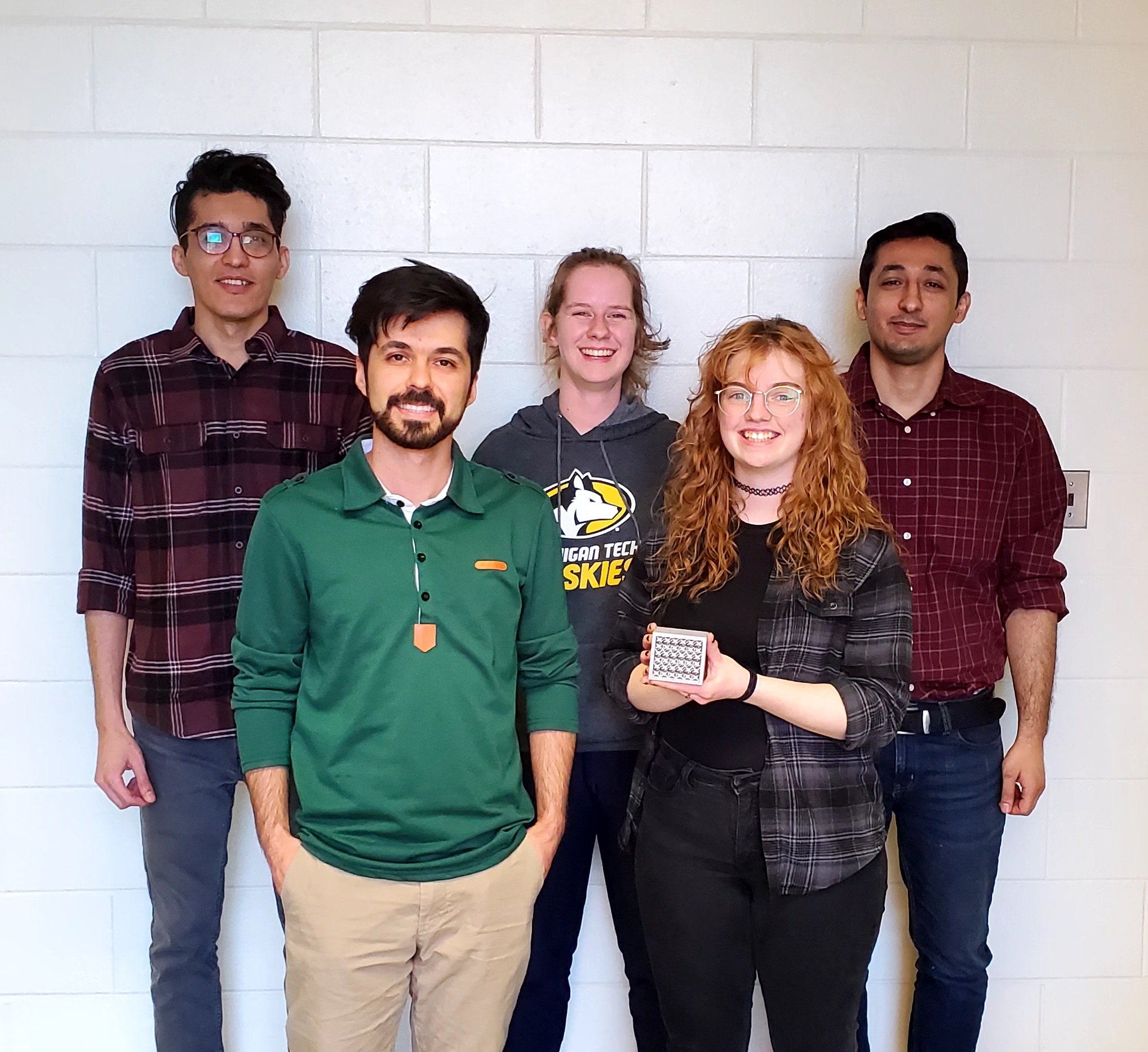Turning dreams into reality is all in a day’s work for Lyon (Brad) King and his entire team at Orbion Space Technology. Case in point: Orbion Space Technology has been named to Fast Company’s Most Innovative Companies of 2024 list. Companies that send satellites into space on a rocket can use Orbion’s thrusters to maneuver them precisely to their final destination.
Dr. King is an experimentalist interested in studying electric space propulsion systems, including Hall-effect thrusters, ion engines, and arcjets. King is the Richard and Elizabeth Henes Endowed Professor (Space Systems) with MTU’s Department of Mechanical Engineering-Engineering Mechanics. As faculty advisor for the Aerospace Enterprise, King works with undergraduate students to provide hands-on aerospace education and experience. Aerospace Enterprise places an emphasis on space mission design and analysis, vehicle integration, systems engineering, and comprehensive ground testing and qualification. The idea for launching Orbion began taking shape here: King and co-founder Jason Sommerville realized they had not only the core technology, but an incredible network of talent in the form of aerospace and Isp Lab alumni to meet an urgent need in the new space economy. King (CEO of Orbion Space Technology) and Makela started the company in 2016.
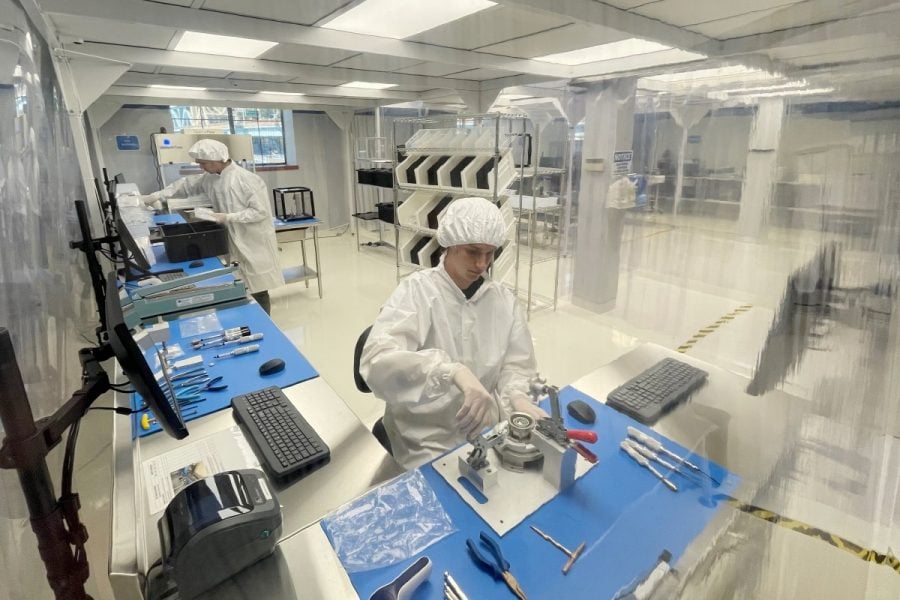
In a previous article, author Cyndi Perkins tells us that “Orbion now employs more than 40 full-time engineers in its Houghton facility, with seven holding PhD degrees. You’ll find Huskies at the helm in several key positions—CTO Sommerville is a 2009 PhD graduate—but the company is more than just an outgrowth of Michigan Tech.”
Other MTU ME-EM alums holding positions with Orbion:
- Jason Makela, PhD — Vice President, Engineering
- Kurt Terhune, PhD — Senior Engineer
Michigan Tech alums from other programs include Kanwal Rekhi, PhD (MS, Electrical Engineering) and John Rockwell (BS, Business Administration).
The Michigan Tech-Orbion connection brings a wealth of opportunities for students to connect theory with practice. Michigan Tech’s Aerospace Enterprise teams have already launched three satellites into space.
